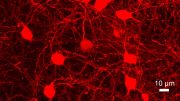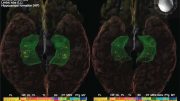
Scientists found 4 genes linked to Tourette’s disorder risk, but up to 400 genes may play a role in this neurological condition that causes motor and vocal tics.
A team of scientists has discovered four genes that are associated with a higher risk of developing Tourette’s disorder, although variants in as many as 400 genes contribute to the origins of the complex neurological condition, which is marked by motor and vocal tics.
A consortium of researchers from multiple institutions analyzed the protein-coding genes of more than 500 Tourette patients and unaffected parents and published the results in the journal Neuron.
They identified one “high confidence” risk gene found in patients but not their parents, and three other “probable” risk genes that contribute to Tourette. These spontaneous mutations seem to be involved in about 12% of cases.
“The sheer number of genes involved may seem daunting, but if other complex neuropsychiatric disorders are an example, we will find that most cluster around a smaller number of biological processes,” said Yale’s Dr. Thomas V. Fernandez, assistant professor in the Child Study Center and the Department of Psychiatry, and co-lead author of the study. “We have been using the same treatments for more than 30 years, so we badly need new treatment options, and these genetic studies will move us closer to toward that goal.”
Dr. Robert King, professor and medical director for the Tourette’s clinic at the Child Study Center, was clinical coordinator for this study. A majority of the gene sequencing was conducted at the Yale Center for Genome Analysis at West Campus.
Reference: “De Novo Coding Variants Are Strongly Associated with Tourette Disorder” A. Jeremy Willsey, Thomas V. Fernandez, Dongmei Yu, Robert A. King, Andrea Dietrich, Jinchuan Xing, Stephan J. Sanders, Jeffrey D. Mandell, Alden Y. Huang, Petra Richer, Louw Smith, Shan Dong, Kaitlin E. Samocha, Tourette International Collaborative Genetics (TIC Genetics), Tourette Syndrome Association International Consortium for Genetics (TSAICG), Benjamin M. Neale, Giovanni Coppola, Carol A. Mathews, Jay A. Tischfield, Jeremiah M. Scharf, Matthew W. State and Gary A. Heiman, 3 May 2017, Neuron.
DOI: 10.1016/j.neuron.2017.04.024









Be the first to comment on "Researchers Discover Four Genes Associated with Developing Tourette’s Disorder"